Resilience, Ingenuity, and Sustainable Development
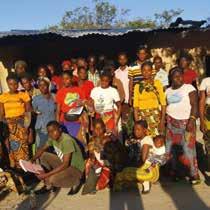
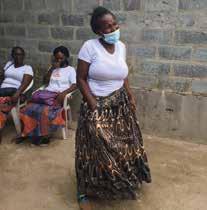
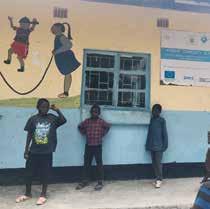
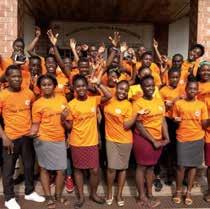
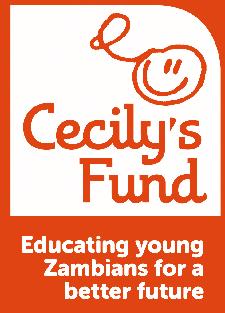
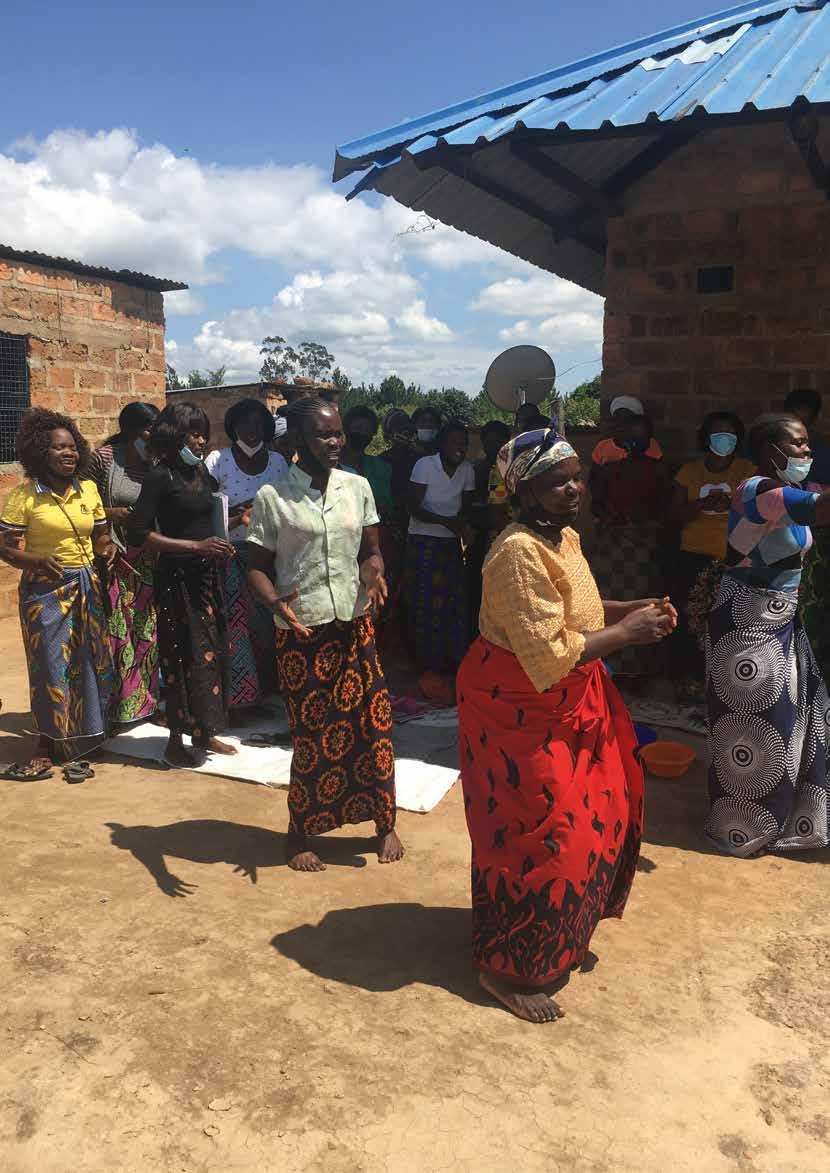







What Action Do We Need to Achieve Good Health by 2030?
Good Health is Our Most Valuable Asset
Access to Education
Paying School Fees is Just the Start of a Child’s Education
Helping to Reduce Poverty Through GROW – Grassroots Owning Wealth
Groups
Lessening Dependency and Improving the Life Chances of Women Affected by Abuse
Closing the Gap in Inequality for People Living with a Disability
Helping to Create a More Inclusive and Fairer Zambia for Everyone
“It was a worrisome moment for me and my family, I couldn’t do any piece work because we were restricted to staying home. I was not sure if we could survive, because we then had two threats (Covid-19 and hunger) to our lives. After I received the first emergency food pack, it was a great relief for us. Honestly this helped me focus on my studies and I also received a bigger torch that I now use for my studies. During the lockdown I concentrated on my revision and studies in preparation for my grade 12 the exams. The second emergency food pack helped me even more to focus on my studies and in readiness for the exam because I did not worry about what my family and I would eat.”

At Cecily’s Fund, we remain inspired by the vision of a sustainable and fair future for people worldwide, as set out by the United Nations Sustainable Development Goals (SDGs) which set ambitious targets to be achieved by 2030. In tackling the challenges we faced in 2021 as a result of the prolonged impact of COVID-19 in Zambia and the UK, we kept our eyes on the longer term, working always to strengthen the resilience of the children and communities we work with, and to find ingenious ways to overcome the many barriers to their success. In response to the pandemic we worked hard to mitigate the economic and social impact on the most vulnerable children, young people, and families, whose futures were affected by school closures and restrictions on all public activity, and who had little or no access to accurate health information and support.
School closures due to the pandemic meant that many children and older youth were out of education for most of 2021. A sharp increase in Covid-19 cases imposed a new month-long lockdown in the middle of the year. Schools reopened at the beginning of 2022, but the disruption to education and Cecily’s Fund’s programme activities created many challenges for our work in 2021.
Nevertheless Cecily’s Fund and our Zambian partner organisations were able to continue with programmes during 2021, showing resilience and ingenuity when it was needed most. Another challenge was the loss of a significant 3-year grant from UKAID, which was withdrawn at the point of implementation because of UK Government funding cuts. However, 2021 also saw a positive development. We were honoured to be approached by Kaloko Trust UK, to take over its programme assets following its need to close after 30 years of successful work in Zambia. After months of planning and discussions, Cecily’s Fund has taken on these programmes and a new implementing partner in rural Zambia.
We are as ever, grateful to our loyal and committed supporters and welcome new supporters from KTUK into the Cecily’s Fund family.
As grants and other funding sources ebb and flow, we are able to continue with our work because of our committed individual supporters and long-standing grant makers who believe in our ability to deliver high quality programmes that support the most vulnerable children and young people in Zambia.
Health is our most valuable asset and we believe that good mental and physical health should start from the earliest age. Our Peer Education Programme reaches out to the most vulnerable children to give them the best start in life that will carry them through to adulthood.
Access to education can be a route out of poverty for the most disadvantaged children. Learning in safe, secure, and well run schools helps children to thrive. This, combined with community engagement, enables children to reach their true potential.
Empowering local communities through the development of savings & loan groups and income generating activities, lessens dependency on external support and enables self sufficiency.
Giving girls and women equal and equitable access to education, training, and basic rights underpins our work. This also includes positive male engagement and working with men and boys to raise awareness to change behaviour and attitude towards girls.

People living with a disability are often overlooked with employment opportunities and access to basic rights and health information.
The development of social businesses that include women who are deaf or hard of hearing is a step towards addressing such inequalities.
“At Cecily’s Fund we kept our eyes on the long-term future for the children and communities we work with, despite the continuing impact of the pandemic in 2021” Cheryl Hooper – Director
“I have learnt a lot of things through the trainings I have been attending. I learnt about self awareness, life skills, how to counsel someone, and I was inspired to work very hard so that one day I can also depend on myself and be a responsible citizen or youth.
Through Cecily’s Fund I learnt how to help my fellow youths out there by mentoring them, and motivating and counselling them with any problem that youths face in their daily lives.”
 Cecily’s
Cecily’s
We follow a holistic approach to our programmes and have adopted a cross-cutting methodology to programme development. Our interventions now address a broad range of inter-linked issues such as gender equity, poverty reduction, diversity and inclusion, and underpinning these activities, is access to education in all its forms.

We believe it is important to have a broader approach to health to achieve the sustainability agenda
SDG3, Good Health and Well Being, interlinks and underpins many other SDG goals. How important is it to have a broader approach for health in order to achieve the sustainability agenda?
Cecily’s Fund’s Peer Education Programme provides children and young people with important health and well-being strategies that helps the most vulnerable to be resilient and able to deal with the daily challenges they face, and helps prepare them for adult life. Often the poorest and most disadvantaged children have low self-esteem, they lack motivation and self-belief, and, are more likely to drop out of education early.
Girls in particular are vulnerable to early sexual debut and teenage pregnancy which often leads to young marriage and not completing education, and, a continuing cycle of poverty.
What lessons about global health have been learnt from COVID-19 in Zambia?

Just like HIV/AIDS, the most vulnerable children, young people and families were not able to easily access reliable and accurate health information about Covid-19. Also whilst Covid-19 dominated the health agenda, HIV continued to be a major health challenge within the communities where we work. As people increasingly live with HIV, the importance of how to avoid it, and not being complacent about the value of good health is vital.
The Peer Health Education Programme, widened its remit to include information on how to keep healthy and avoid Covid-19 as well as HIV/AIDS. We also introduced a module on climate change and the importance of protecting the environment including practical action that students can take. Sessions were facilitated by Cecily’s Fund’s own alumni who were supported through school and then trained to be Peer Educators. They then return to schools to share their knowledge in a way that young people understand and get more engaged.
Our focus on SDG3 is to support vulnerable children and young people through good mental health strategies. Peer to peer learning takes place in schools, as well as in the community. Our youth-led Sunshine Clubs, offer advice, training, life-skills, motivational sessions and recreation activities, for out of school youth.
• 16 new PHE youth mentors were recruited and trained in Kitwe in addition to 18 in Lusaka
• New PHE youth sessions were run in Lusaka specifically to support high risk youth or youth receiving HIV/AIDS antiretroviral therapy
• 79% improvement in knowledge about HIV and other health matters in trained Peer Educators after receiving training
• Baseline tests on HIV knowledge and SRH before and after training demonstrated a 40% improvement in knowledge and understanding of young people attending PHE sessions
• Planning took place for 8 new in-school Sunshine Clubs to be established in 8 CF schools in 2022.
• A Review and Learning meeting took place with Sunshine Leaders and PHEs
• Sports activities when allowed, played a key role in helping children and young people to refrain from indulging in antisocial behaviours common in local communities e.g. drug and alcohol abuse, premarital sex, teenage pregnancies and marriage, theft, violence, dropping out of school and bullying.
• Income generating activities took place in Sunshine Clubs to help youth learn and develop skills in finance, business development and the concept of saving.
Cecily’s Fund in collaboration with our local implementing partner Copperbelt Health Education Project (CHEP,) has been helping young people to stay healthy and protect themselves from HIV/ AIDS since 1998.
Through antiretroviral treatment, HIV is not the life sentence that it was twenty years ago. However, in 2020/’21, nearly half a million people accessed HIV counselling and testing in the Copperbelt Province alone.

While we have achieved much progress with the prevention of mother to child transmission, and increasing numbers of people are living normal and productive lives, there are still substantial numbers of new infections which Zambia has to battle with.
There were lessons learnt from HIV and the Covid-19 pandemic that has shown us that unless communities and individuals can access reliable and accurate health information without stigma and discrimination, they will continue to be vulnerable to ill-health.
By reaching young people at the earliest age using a peer to peer approach, we are able to help reduce the likelihood of HIV and other diseases through prevention and early intervention.
With more than 50% of Zambia’s population under the age of 18 years. Positive adult role models can be hard to find. Through peer education we are able to help develop youth citizenship by widening the peer education curriculum to include other important subjects such as climate action, gender equity and disability rights.
Improvement in knowledge about HIV, Covid-19, gender equity & sexual reproductive health among youth who trained to be Peer Educators.
Young School Leavers supported by Cecily’s Fund were recruited and trained to deliver peer education in schools.
Youth Peer Educators were trained to support high risk out of school youth to remain healthy and motivated.
New training modules were developed and added to the Peer Educator training comprising Covid-19, Climate Change and disability awareness.
Pupils in schools in the Copperbelt benefited from Peer Education Sessions when restrictions lifted.
Beneficiaries receiving peer education were girls.
“After all the [peer educator] training I underwent through Cecily’s Fund, I avoid getting involved in unnecessary sexual relationships because I look at life so differently. I look at marriage as an important thing but only at the right time with the right partner hence someone should wait to be mature enough to make a decision to marry or get married. For example someone should complete their studies, develop survival skills, be disciplined in saving or establish a business and be successful before getting into marriage.”
Sophie
“Despite all that I went through, I managed to write my grade nine examination and made it to grade Ten at Kamatipa secondary school in Kawama, I was excited that I made it irrespective of the challenges I faced. The sponsorship was the best thing that ever happened to me, it really motivated me and I made up my mind that I would work extra hard as I knew that there was no one else to help me, and if I ever squandered this chance then my dream of a better life would be destroyed.” Mary completed her grade 12 and passed with good results.
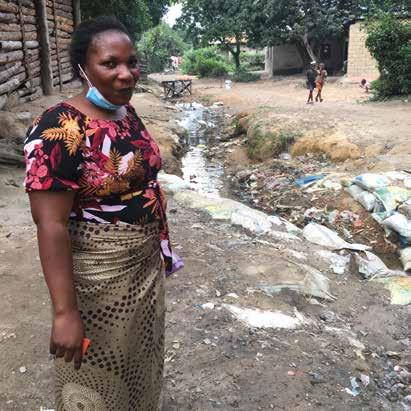
We took the decision to work more closely with 8 schools to help build their capacity and improve the educational and social outcomes for the most vulnerable children.
Paying school fees is only the start of a child’s education, and enabling the most vulnerable children to succeed, requires a holistic approach to their learning and care at school, and beyond. By working closely with 8 highly disadvantaged schools with few resources, we began a schools’ capacity building programme to create models of good practice in governance, pupil care and support, parent engagement, and closer support and collaboration with the Ministry of Education. We assessed schools to identify gaps and areas for improvement.
• We looked at critical processes for safeguarding and protecting children.
• We worked with school heads to understand the role and effectiveness of their PTA (Parent Teacher Association) and the School Governing Board
• We asked Head Teachers about their IT skills and access to computers.
• We assessed the financial management and systems for accounting.
• We asked about disability access and school’s approach to being inclusive.
• We looked at parent engagement and how supportive and involved parents and guardians were in their children’s education.
A mapping exercise of schools was carried out to understand the profile and vulnerability of children in school.
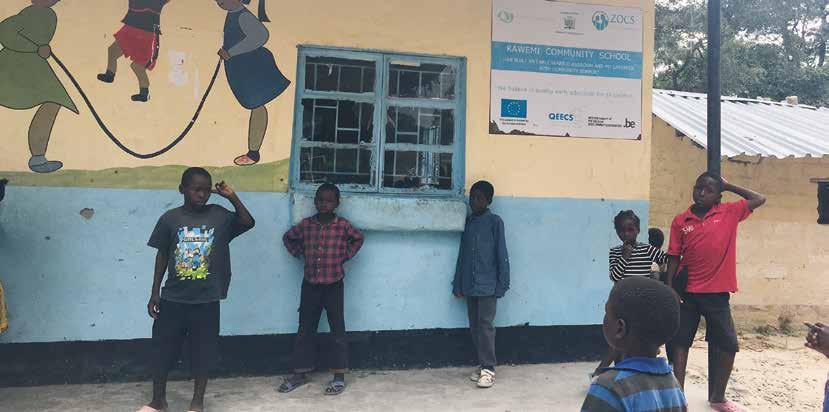
We worked with our local partner CHEP to identify schools in highly marginalized communities.
A detailed assessment of children’s needs and an application process was developed to invite schools to apply to be a Cecily’s Fund partner school.
Terms of Reference for schools were developed and a steering group formed with District Education Board Secretariat for Kitwe and Chingola.
Getting an education is a major step towards a route out of poverty. By working closely with schools we are helping children to thrive and become good citizens and future role models.
COVID-19 led to almost 4,000 children supported by Cecily’s Fund, not going to school for up to 9 months.
4000 children were supported back to school when restrictions lifted
• We supported more than 600 vulnerable children with school fees and exam entrance fees.
A large proportion of Zambia’s children grow up in the absence of one or both parents
• Teaching and learning resources were provided to Cecily’s Fund Partner Schools.
All Cecily’s Fund Partner Schools now have a bank account and have financial controls in place
• We supplied 6 community schools with laptops and trained 24 school staff and Head Teachers in basic IT for school management planning and reporting.
• We enhanced safeguarding and child protection practices through training.
• We helped 16 Head Teachers and school staff to manage school finances and be transparent by providing financial management training.

• We formed a steering group with the DEBS Kitwe and Chingola to strengthen ties with local government.
Policies in safeguarding, disability, financial controls, and gender are actively followed

• Through peer education, we helped 2,479 orphans and vulnerable children become more resilient and gain important life-skills that will carry them through to adulthood.
• We set up GROW savings groups connecting parents and Partner Schools to help build income for their families and be more financially secure.
Middle-income countries may be home to about 80% of the new poor of children in Zambia aged 0–14 are orphans. This is one of the highest rates in Sub-Saharan Africa*

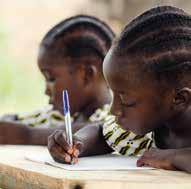
• Our Alumni provided homework support, exam boosting, and motivation sessions to the most vulnerable children reach their potential and succeed.
*Orphanhood and Child Vulnerability Zambia www.researchgate.net/publication/24141725_Orphanhood_ and_child_vulnerability_-_Zambia
“Poverty does not make someone less human hence it should not be an excuse, we all have the ability to prosper and inspire people.”

The impact of Covid-19 continues to affect the people of Zambia and as is often the case, the poorest and most vulnerable families were hit the hardest. As shops, markets, schools, and businesses closed, incidences of violence and abuse of women increased
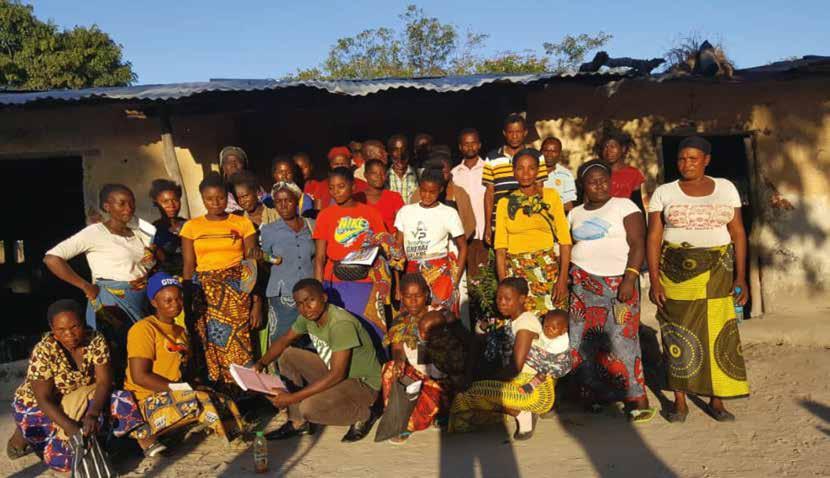
GROW savings groups are a tried and tested model which Cecily’s Fund applies amongst those caring for the children we support. The groups help poor and highly vulnerable women to save and lend each other small amounts of money, and, accumulate wealth, despite living in extreme poverty. This stops them from being open to exploitation by relying on unscrupulous lenders and sugar daddies. By training women to be financially independent, they are able to protect their children and assets, it helps to avoid abuse, and establishes good role models for daughters to follow.
“I am one of the happiest parents to receive this opportunity that will enable me to improve my busines. Before the trainings I hardly knew a thing, but now I can gladly say that am able to budget for my vegetables and tomato orders as well as put in recording all expenses I make for accountability purposes.”
GROW Savings Groups are developed to help poor people to save and lend money to each other so that they can start small businesses and create an income for their families.
• 4 new GROW Savings Groups formed and had training in learning how to save as a group
• 9 Active GROW Savings Group now operate in Chingola and Kitwe district and meet weekly
• Kawami GROW Group used 7,000 kwacha out of its social fund to support members in extreme hardship
• Starting with a baseline of zero savings, they accumulated 111,204 kwacha
• Devine Favour GROW group increased its savings by over 9000 kwacha in just one quarter
• The highest individual savings by a GROW member was 10.350 kwacha
• Financial literacy training and learning the GROW methodology took place with an average of 25 participants in each training
God With Us GROW Group Savings Accumulated 3 months after training
Lesa Alasuka GROW Group Savings Accumulated 3 months training
After 56 Weeks
Savings Twikatani GROW Group
“After being trained in GROW savings, I started a small business to sell chikanda. I can now manage to make money to save on a weekly basis.”
Buyantashi GROW Group Savings Accumulated 3 months training
Tubombeshe GROW Group Savings Accumulated after 3 months training
Destiny GROW Group Savings 3 months after training
Early research on the impact of Covid-19 in Zambia, shows it has pushed the poorest of the poor into further precarious circumstances, and increased food insecurity triggering a food crisis where many people do not have enough to eat.*

of Zambia’s population live on less that $1.25 a day*
In 2020, Zambia’s poverty rate was higher than 50%. and chronic malnutrition continues to persist at 35 %. The divide between the rich and poor is expanding.
“Growing up in a community that consider marriage as a big success is a big challenge, in such communities the most affected is a girl child, some families or cultures expect a girl to get married as soon as she reaches puberty age. However, the future is bright as we have young people actively taking part in educating a girl child on the effects and dangers of early marriages and unplanned pregnancies.”
 Cecily’s
Cecily’s
Cecily’s Fund’s Focus 2021
Covid-19 and continuous lockdowns had a serious impact on Zambia’s economy and the effects are still being felt by women across the country. Cecily’s Fund’s local partner Bwafwano Integrated Services Organisation (BISO) saw a significant increase in domestic violence and the physical and psychological abuse of women and girls.
Not understanding basic rights and gender equity, including the rights of the child prevents women from seeking help.
Poorly educated women are financially dependent on men and have no control over their lives.
Community acceptance of mens’ behaviour and attitude towards women.
Training in understanding basic rights and gender equity, along with signposting and support services.
Provide vulnerable women with training in financial literacy and skills for income generating activities.
Work with men and community leaders to lead the way to gender equity and respect for women.
High unemployment and lack of opportunity can result in early sexual debut, teenage pregnancy, and young marriage. Because of this, teenage mothers often abandon their children, leaving them to be looked after by grandparents and other family members.
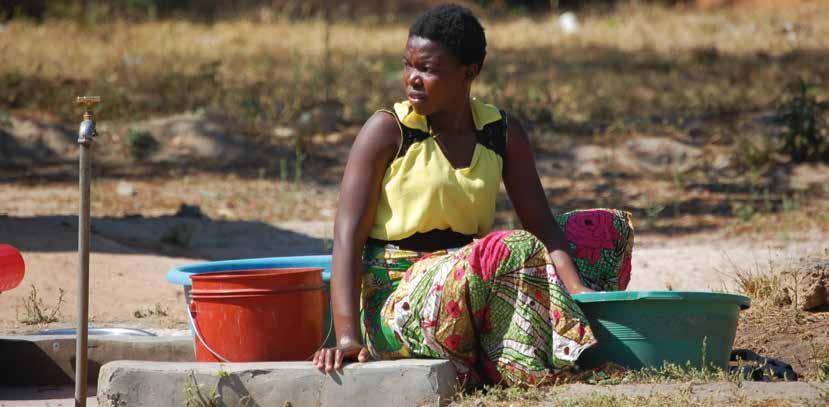
A 2-year project began in 2021 supporting a total of 40 women and girls living in the shanty compound of Chazanga, Lusaka. During lockdowns, we planned the implementation of a series of interventions and activities that would support their psycho-social and economic development. Planned outcomes included increased confidence and greater understanding of basic rights, financial literacy training, entrepreneurship training, and the creation of 4 social tailoring businesses that will make and sell reusable menstrual hygiene packs and school uniforms. Combined interventions will result in increased financial independence and avoidance of sugar daddies and unscrupulous money lenders; greater empowerment, and knowledge of how to stay safe and healthy; improved self-esteem and resilience; happier, more fulfilled women who will be able to pass on their knowledge and skills to daughters and siblings using a peer-to-peer approach.

Tailoring skills for 40 at-risk women
Additional training in basic rights, sexual reproductive health, and financial literacy
Support & training in social business development manufacturing reusable sanitary towels & school uniforms
Community camp fire sessions for men in the community to help change behaviour towards women
“Before the training my teenage daughters and myself used to use ordinary sanitary pads and sometimes chitenge cloths during menstruation. The girls in addition did not have adequate information about menstrual hygiene. I am very thankful that the training has taught me a vital information about menstrual hygiene which I will be able to share with my daughters and others in the community. I have learnt a new skill of actually manufacturing reusable pads, both used by myself and daughters, and for sale to others, thereby making money which I can use for household welfare.”

Cecily’s Fund’s ‘Impossible: I’m Possible’ programme specifically addressed the need to empower young people and parents affected by hearing loss to have access to important health information about how to avoid HIV and also to know their basic rights. The three-year programme aimed to train deaf youth to be Peer Educators, who would then be able to communicate with other deaf children about their basic rights using sign language. Alongside this we aimed to teach parents and guardians of deaf children, and parents who were themselves deaf, to have access to training in entrepreneurship and financial literacy through the formation of GROW savings groups.
We revised and adapted the programme in response to UKAID’s withdrawal of our 3-year grant due to international Aid cuts, and in spite of Covid-19 challenges, worked with parents of deaf children alongside parents of hearing children, to make them more aware of the challenges and obstacles facing people with a disability. By training parents together, we addressed issues around stigma and discrimination, we empowered deaf mothers by including sign language in the training, and we helped to reduce discrimination in the wider community.
Two social businesses were developed with the aim of making and selling reusable sanitary towels and face masks which would be sold in local markets. Women were taught about sexual reproductive health and basic rights so that they were able to give accurate information and signposting to health services to women and girls at the point of sale, including those who were deaf or hard of hearing.
Despite Government of Zambia social protection policies to support adults & children with disabilities, barriers continue to persist due to lack of enforcement in policy resulting in exclusion from services and equality of opportunity in employment, education, and training.
• 128 women and men were given training in disability awareness and basic rights
• 4 social business enterprises were formed comprising deaf and hearing parents
• 32 women were taught tailoring skills and how to make and sell reusable menstrual hygiene towels

• 325 reusable sanitary towels were made and sold 16 sewing machines were provided servicing 32 women
• 2 new GROW savings groups were formed with a combined total savings of 47,685 kwacha
• 300 handmade face masks were ordered from a local government department which increased income
Disability and Poverty are inextricably linked
More than
15% 34.4%
of people live with a disability in Zambia*

The literacy rate for people with a disability is 58.6% compared to 83.8% of people without a disability
of children with a disability have never attended school
The highest level of education for the majority of children with a disability is primary education
The Persons with Disabilities Act requires the Ministry of Health to provide free general and specialized medical care, including rehabilitation and assistance for persons with disabilities. In practice, however, there is limited availability of specialized equipment, services and personnel across the country.
Staff and beneficiaries were trained in disability awareness. During the training, community members gained knowledge on what it meant to be disabled and that it does not make any person more inferior than the other. Before the training discussion on disability issues indicated that people saw it as an impairment on the body of a person and a very negative attitude towards persons living with disabilities. Perception and knowledge about disability has gradually changed, Parents and guardians living with children who are impaired in any form, now show willingness to be open and share experiences with others. There has also been a change in attitude and perception towards children and persons living with disabilities within the communities they come from.
*Zambia Agency for Persons with Disability 2017-2021 World Health Organization and World Bank: World Report on Disability 2011; World Bank 2012 (Zambian Population).
“The [Cecily’s Fund] programme has really helped and allowed children with a disability to not be hidden away. I am deaf and as a child, I was called names and hidden away and so I am very grateful for this opportunity.”
The charity continued to enjoy a strong financial situation throughout 2021 with year-end reserves totalling £126,063 (2020 year-end reserves £133,779).
Remittances to our Zambian partners in the year totalled £128,868 bringing the total of remittances made to our Zambian partners since the inception of the charity in 1998 to £6,486,483.
Both the income and expenditure categories for 2021 and the assets and liabilities of the balance sheet at December 31, 2021 were in line with budgets set at the beginning of the year by the Board of Trustees.
Our work would not be possible without the support and commitment of our loyal individual supporters, grant-making trusts and foundations, schools, and churches, who continued to believe in us during 2021 in spite of the continued challenges presented by the global health pandemic. We thank you for your understanding, trust, and flexibility regarding the delivery of our programmes during this time.
Accentus Charitable Foundation
Andrew House Charitable Trust
Ann and Christopher Fielden Charitable Trust
Austin Bailey Foundation
Bartlett Taylor Charitable Trust Beatrice Laing Trust
Bryan Guinness Charitable Trust Cauda Trust
Coles Medlock Foundation
The Cumber Family Charitable Trust David Laing Foundation
DLM Charitable Trust
Doris Field Charitable Trust
Dennis Alan Yardy Charitable Trust Eureka Charitable Trust
Fresh Leaf Charitable Foundation
Fulmer Charitable Trust
George Oliver Foundation James Tudor Foundation
Mageni Trust
Marsh Christian Trust Mercury Phoenix Trust
N Smith Charitable Settlement
Stockwell Charitable Trust
Souter Charitable Trust
Symphasis Foundation
Schools
Southborough High School
The Dragon School
King Edward VI Camp Hill School for Girls
St Pauls Church, Nottingham
Portishead CoE
Briercliffe Road Church, Burnley
Community Groups
Witney Inter-Church Singers
Stephanie Harland, Chair Andrew Tacon, Treasurer
Basil Eastwood, Chair of International Advisory Panel Phillippa Tolmay
Tom Childs Veronica Oakshott Isobelle Jaques
Staff
Cheryl Hooper, Director
Bob Gooderick, Finance Manager
Steven Barlow, Programmes Manager
Anne Cooper, Senior Fundraiser
Sam Shaw, Communications Lwiza Mulenga, Supporter Relations Administrator
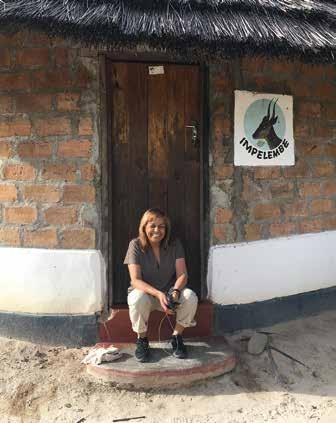
CHEP (Copperbelt Helath Education Project)
BISO (Bwafwano Integrated Services Organisation) KTZ (Kaloko Trust Zambia)
Swiss Friends of Cecily’s Fund
American Friends of Cecily’s Fund
To protect the identity of beneficiaries, names have been changed.

Cecily’s Fund has invested over £6 million in life changing interventions that have helped the most vulnerable children in Zambia to improve their life chances through access to education, economic empowerment, and psycho-social support. As our programmes have evolved, we have adopted a crosscutting approach to programme development which address a broad range of interlinked issues such as gender equity, livelihood development, poverty reduction, diversity and inclusion. Underpinning these activities is our belief that access to education in all its forms, a holistic approach that supports the most vulnerable children and, strengthening the communities in which they live, can lead to better and more secure futures, lessen dependency on external support, and helps communities to be self-reliant. If you would like to get in touch, we are at: 6 Church Green, Witney, Oxfordshire, OX28 4AW Tel: +44 (0)1993 358 089 www.cecilysfund.org
The Cecily’s Fund Annual Review 2021 is available online as a PDF at www.cecilysfund.org
Cecily’s Fund was formed in memory of Cecily Eastwood who died in Zambia during her gap year in 1997. Our smiley logo is how she signed her letters home. Since its formation Cecily’s Fund has helped over 20,000 disadvantaged children to have a brighter future. Charity registration: 1071660
